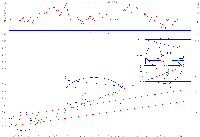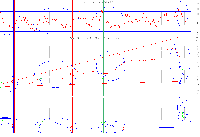|
|||
Have Free Markets Failed?Troy Schwensen The following is an extract from the February 09 Issue of The Global Speculator sent to subscribers on the 11th February 2009. Australia's Prime Minister, Kevin Rudd, has recently delivered an address to the nation providing details on his second stimulus package. Within this briefing, there was a number of sniping remarks about the so called "failure of free markets". This apparent failure has forced the government to step in and clean up the mess. On the back of an announcement a few days before, where Treasury had forecast a tax revenue decline in excess of $115 billion over 3 years, our government has come up with another $42 billion stimulus package (effectively unfunded). It seems free markets cannot be trusted to spend money wisely, so it is up to the government to spend our money for us. I want to make a couple of points. Firstly, free markets work fine. The global problems we have experienced in the credit markets were caused by easy monetary policy. Many argue the cause was a lack of financial sector regulation. The more pertinent question to ask is why does the financial sector need so much regulation in the first place? Why is it that free markets work well in other industries but fail so dismally when it comes to the financial sector? The answer is quite simple. The financial markets are anything but free! We have a government entity called a central bank that essentially sets the price of money. It decides the level of interest rates under the flawed belief that the market is incapable of performing this function on its own. When the US entered a mild recession in 2001, Alan Greenspan lowered interest rates to 1.25% and encouraged US citizens to refinance their mortgages and spend, spend, spend! This fueled the mortgage bubble, which like all bubbles, inevitably burst. There was the usual greed associated with "credit induced" booms but this was a nasty symptom not the cause. The second point I want to make is governments are incapable of investing money smarter than individuals and companies. By deficit spending, they are drawing funds away from the capital markets and effectively competing with businesses for money. Over the longer term, this will put upward pressure on interest rates exacerbating our economic problems. What Australians should be doing right now is saving and paying down debt. At some point this will inevitably have to happen anyway. By lowering interest rates to historically low levels, the message central banks are sending is don't save, borrow and spend. Governments are releasing stimulus packages encouraging us to spend and "save the economy". You cannot save an economy via consumption. All you are doing is prolonging the agony. Individuals and organizations need to clean up their balance sheets and save. Will there be pain associated with this process? You bet. Will people lose their jobs and struggle for a while? No doubt. Will some businesses go bankrupt? Of course they will. All these things I have described are necessary in order for the economy to purge itself of all the excesses and mal-investment associated with the preceding boom. We need to replenish capital which will inevitably help fuel a "sustainable" economic recovery. Everything our governments and central banks are presently doing is delaying the inevitable at an astronomical cost to us all. Gold Wave Analysis Update Commentary The wave 3 rally has progressed nicely during the month up to US$900/oz, which is the last point of heavy resistance before we potentially make a bigger move up to the previous highs of around US$1,000/oz. The gold shares are performing strongly, indicating that this rally continues to have legs (see review of the XAU below). XAU The chart below highlights key points in time when the XAU is overbought (RSI 30) and oversold (RSI 70), relative to gold. Once the respective indicators trigger (blue vertical lines), it then becomes a task of following trends in the ratio looking for definitive breaks to signify entry (green vertical lines) and exit (red vertical lines) points. The gold price wave analysis above helps us get our bearings. Right now, with the commencement of a Wave 3 rally, we should expect to see precious metals equities outperform the gold price signaling further strength in the metal. Gold/XAU Long term Picture Gold XAU Ratio
Gold/XAU Intermediate Term Commentary Gold shares have continued to outperform the gold price this month, as the XAU gained another 11% versus a gain in the gold price of close to 7%. This continues to reinforce the Wave 3 gold price rally and strengthens the odds of a move higher towards US$1,000/oz over the coming weeks and months. The Gold/XAU ratio, in the bottom section of the above chart, has been consolidating in a nice range between 6.95 and 7.90. A clear break of the support at 6.95 would signal a move higher in the gold price towards the US$1,000 mark. A break the other way, through 7.90 - 8.00, would be a strong signal that the rally we have experienced is topping out and some profit taking may be the order of the day. Closing Comments Looking at the technical indicators this month gives me confidence things are shaping up very nicely for gold and even more so gold equities. The gold price in Australian dollar terms hit an all time record high in January 09 but has since settled back. Local gold producers are enjoying falling costs and increasing prices for the gold they sell. It's becoming the best of both worlds. The falling costs however should probably not be taken for granted. Many of our politicians are enjoying the attention as they attempt to justify their own actions and convince us they are doing the right thing. Unfortunately, while they predominantly have our best interests at heart and many of them believe they are making a positive difference, the reality is they are simply making matters worse. It is ultimately government interference that got us into this mess and let me assure you government interference sure as hell isn't going to get us out of it. The Great Depression is an excellent example of how government interference needlessly prolonged an economic malaise. Please look after yourselves and protect the purchasing power of your wealth. For anyone interested I write a free newsletter on the precious metals market including news related articles on various gold mining companies listed both in Australia and North America. Come visit us at the website below. Past issues of the newsletter may also be accessed in the archive section. Troy Schwensen CPA Troy Schwensen
is a full time investor/Trader who spent 8 years in the Accounting
and Finance industry which included roles with blue chip Australian
companies such as Goodman Fielder and Fosters where he spent three
years as a Senior Business Analyst. He made a decision to leave
this industry in 2002 after discovering a long term opportunity
to invest and trade in the precious metals market where he has
since used his analytical skills to build a sound working knowledge
of the sector and its comprising companies. |




